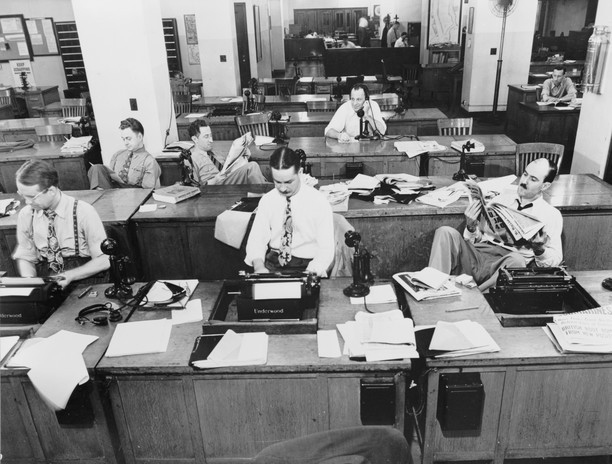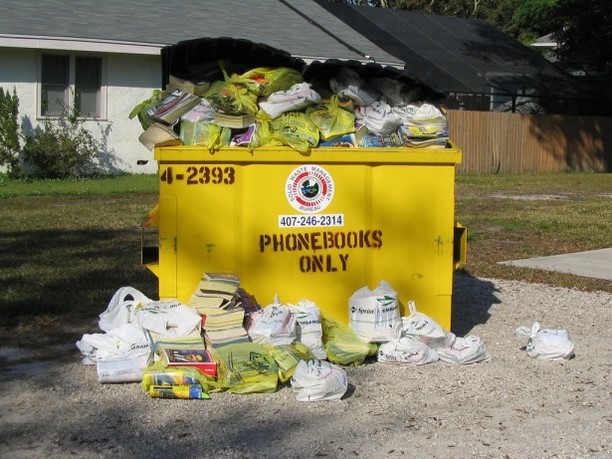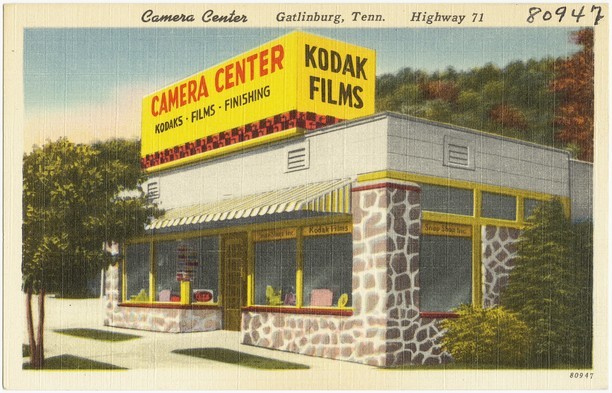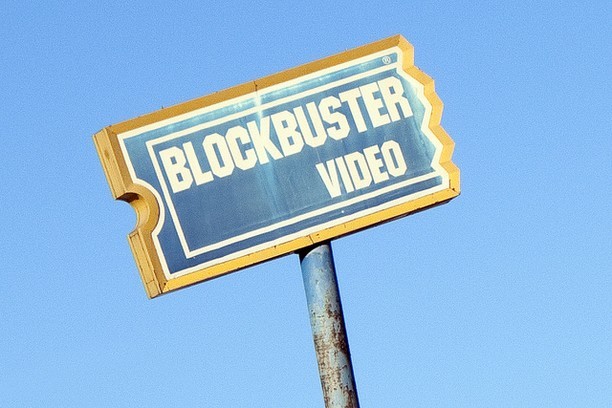Compare courses from top Australian unis, TAFEs and other training organisations.
10 Jobs That the Internet Killed
The internet has changed the way we live in more ways than one. Julia takes a look at which jobs have had to take the exit ramp thanks to the information super highway.
Julia Watters
Jun 15,2025
As the digital revolution reshapes how we live and work, it’s no surprise that some jobs have disappeared—or at least drastically evolved. The internet has enhanced convenience, access and automation, but it’s also left a trail of now-obsolete roles in its wake.
Here are 10 once-common jobs that the internet has effectively killed—or transformed beyond recognition.
1. Encyclopedia Salesperson
Before Wikipedia and Google, the encyclopedia set was a household staple—sold door-to-door by charismatic salespeople. These bulky volumes were the go-to source for school projects and general knowledge.
But with instant online access to free information, including scholarly sources and AI tools, the need for physical encyclopedias (and those who sold them) has vanished.
Explore instead: Information & Digital Literacy Courses
2. Traditional News Reporter
Journalism still exists—but the newsroom has changed dramatically. Staffed media roles have declined as outlets shift toward digital content, short-form news, and outsourced freelancers. Sub-editors, once newsroom mainstays, are increasingly replaced by algorithms or consolidated teams.
Modern journalists are often freelance content creators or work across multimedia platforms. Quick takes and listicles often trump deep investigative reporting.
Suggested course: Certificate in Freelance Journalism
3. Music Store Employee
From HMV to Sanity, brick-and-mortar music stores have largely disappeared. Streaming platforms like Spotify, Apple Music and YouTube have made digital consumption the norm. Most teens today have never bought a CD—and wouldn’t know where to find one if they tried.
While the nostalgia remains, the job of the in-store music specialist has been replaced by playlist curators and streaming algorithms.
4. Traditional Book Publishers
While publishing still exists, the barriers have come down. Self-publishing on Amazon, blogging platforms and social media allow writers to bypass traditional gatekeepers. Success stories like *Fifty Shades of Grey* prove digital-first can disrupt an entire industry.
Today, content creators can publish, promote, and monetise their work online without a formal publisher ever stepping in.
Read next: How to Become a Professional Blogger
5. Bank teller
Online banking, mobile apps, and smart ATMs have made traditional bank tellers increasingly rare. Today, you can transfer funds, pay bills, and even apply for a mortgage from your phone—no branch required.
In 2024, major Australian banks continued to reduce in-branch services in favour of digital banking hubs and AI chatbots.
Explore careers in: Financial Services & Fintech
6. Yellow Pages Delivery Driver
The phonebook used to be a household essential—and delivery jobs to drop them off were in steady supply. But with Google Maps, search engines, and online reviews, few people even pick up their Yellow Pages deliveries anymore—when they arrive at all.
In 2023, Sensis officially discontinued print White Pages deliveries in most metro areas.
7. Traditional Travel Agent
Once your first stop for flights and itineraries, travel agents have been largely replaced by online tools like Skyscanner, Booking.com and Airbnb. Anyone with a WiFi connection can now research, plan, and book their own trip—often cheaper and faster.
While luxury and niche travel advisors still exist, the average person books direct, DIY-style.
Pivot into: Tourism & Events Management Courses
8. Film Processing Technician
Once found in every pharmacy or department store, photo developers and camera film processors have nearly disappeared. Today, digital photography and smartphone cameras dominate, and most photos are stored online, not in shoeboxes.
Even traditional film brands like Kodak and Fujifilm have pivoted to digital innovation to survive.
9. Traditional Librarian
The internet has redefined how we access information, but it hasn’t entirely eliminated librarians—it’s transformed their role. Many have upskilled into digital librarianship or educational roles, like teacher librarianship.
Still, for many smaller libraries, fewer physical visitors and increased reliance on online databases have meant fewer traditional librarian roles overall.
10. Video Rental Store Employee
Blockbuster, once a Saturday night staple, is now a relic of the past. With streaming giants like Netflix, Stan, Binge and Disney+ dominating home entertainment, the job of the video store clerk has virtually vanished.
While one Blockbuster remains in Oregon as a novelty, the rest have been replaced by binge-watch buttons and subscription services.
The Internet Changed the Workforce—But It Also Created New Jobs
While these jobs have faded, it’s not all bad news. For every job technology has replaced, new ones have emerged. From social media managers to app developers, the digital world has opened up exciting career paths that didn’t even exist a decade ago.
Not sure where to start? Online learning makes reskilling faster, easier, and more flexible than ever before.
About the author
Julia Watters covers topics in career development, educational guidance, and workplace success in her Career FAQs articles.








